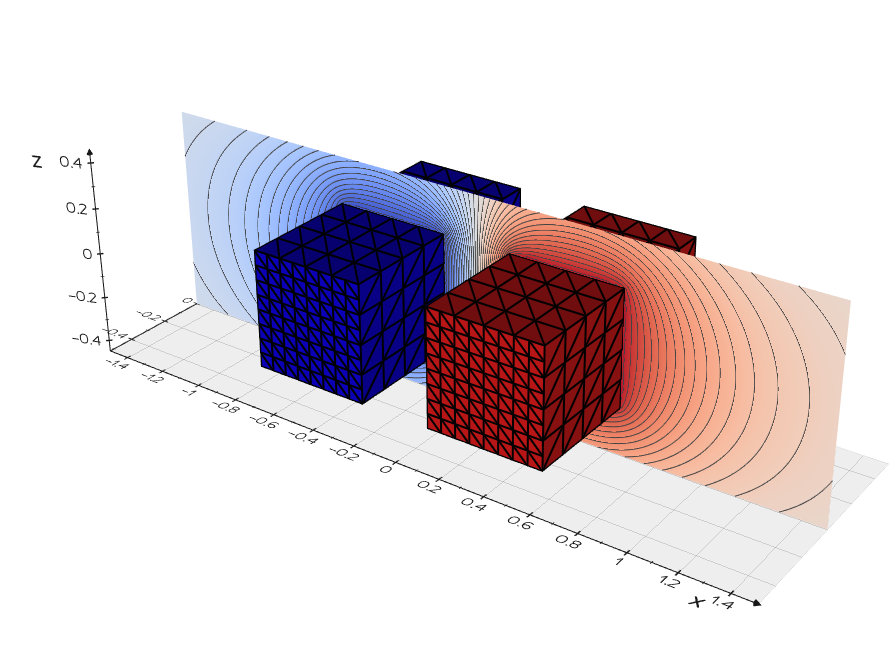Traceon is a general software package used for numerical electron optics. Its main feature is the implementation of the Boundary Element Method (BEM) to quickly calculate the surface charge distribution. The program supports both radial symmetry and general three-dimensional geometries. Electron tracing can be done very quickly using accurate radial series interpolation in both geometries. The electron trajectories obtained can help determine the aberrations of the optical components under study.
Traceon is completely free to use and open source. The source code is distributed under the AGPLv3 license.
Please cite the software as follows:
L.B. van Velzen. Traceon software (version 0.6.0). 2023. https://doi.org/10.5281/zenodo.11528404
Install using the Python package manager:
pip install traceon
The installation is known to work on Linux and Windows. Please reach out to me if you have any installation problems.
To ensure the accuracy of the package, different problems from the literature have been analyzed using this software. See /validation directory for more information. The validations can easily be executed from the command line, for example:
python3 ./validation/edwards2007.py --help
python3 ./validation/capacitance-sphere.py --help
etc...Don't worry. You can reach me.
v0.6.0:
- New methods to integrate triangle potential and field contribution over a triangle
- Fix 3D convergence issues by more accurately calculating neighbouring triangle interactions
- Fix error calculation in particle tracing
- Introduce logging module to control verbosity of printing
- Clean up unit tests
- Remove higher order (curved) triangle support, in preparation of parametric meshers and improved FFM implementation
v0.5.0:
- Add preliminary support for magnetostatics
- Improve and generalize mesh class (allow import/export)
- Make consistent use of SI units
v0.4.0:
- Introduce Fast Multipole Method (FMM) for large 3D problems
- Compute 3D radial expansion coefficients using analytical formulas
- Further speed up computation of 3D radial expansion coefficients
- Big code quality improvement of validation/ files
v0.3.0:
- Use adaptive integration using GNU Scientific Library (GSL)
- Add support for boundary constraint
- Use Vedo for better plotting capabilities
- Use higher order triangle elements for 3D (curved triangles)
- Precompute jacobians/positions for better performance
- First implementation of element splitting based on charges (work in progress)
v0.2.0:
- Use higher order charge distribution on line elements in radial symmetry
- Use higher order line elements (polynomials) in radial symmetry
- Better integration techniques, especially with regards to the logarithmic singularities
v0.1.0:
- Uses the powerful GMSH library for meshing
- Solve for surface charge distribution using BEM
- General 3D geometries and radially symmetric geometries
- Dielectrics
- Floating conductors
- Accurate electron tracing using adaptive time steps
- Field/potential calculation by integration over surface charges
- Fast field/potential calculation by radial series expansion
- Superposition of electrostatic fields
